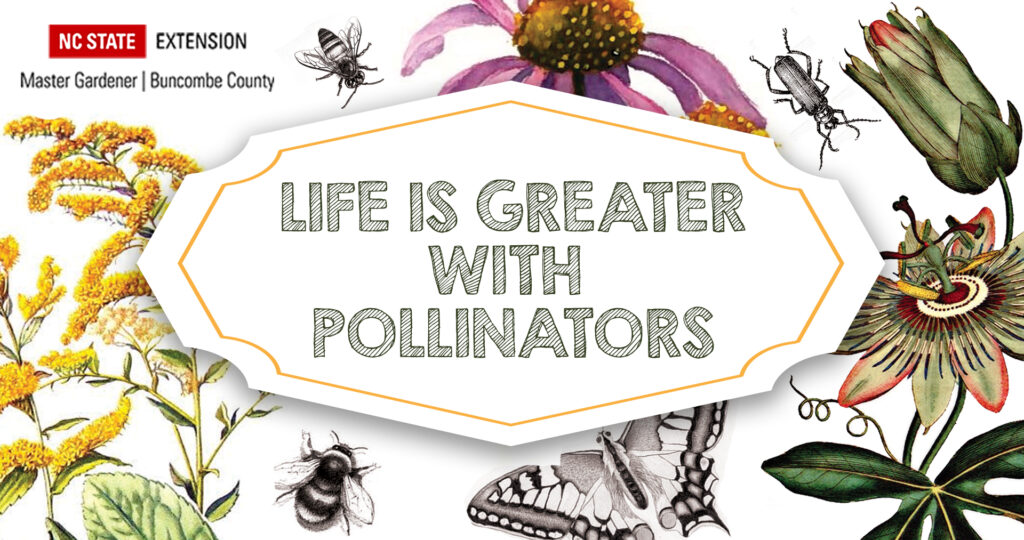Buncombe County: Pollinator Habitat – Conservation and Restoration in Your Garden
go.ncsu.edu/readext?797637
en Español / em Português
El inglés es el idioma de control de esta página. En la medida en que haya algún conflicto entre la traducción al inglés y la traducción, el inglés prevalece.
Al hacer clic en el enlace de traducción se activa un servicio de traducción gratuito para convertir la página al español. Al igual que con cualquier traducción por Internet, la conversión no es sensible al contexto y puede que no traduzca el texto en su significado original. NC State Extension no garantiza la exactitud del texto traducido. Por favor, tenga en cuenta que algunas aplicaciones y/o servicios pueden no funcionar como se espera cuando se traducen.
Português
Inglês é o idioma de controle desta página. Na medida que haja algum conflito entre o texto original em Inglês e a tradução, o Inglês prevalece.
Ao clicar no link de tradução, um serviço gratuito de tradução será ativado para converter a página para o Português. Como em qualquer tradução pela internet, a conversão não é sensivel ao contexto e pode não ocorrer a tradução para o significado orginal. O serviço de Extensão da Carolina do Norte (NC State Extension) não garante a exatidão do texto traduzido. Por favor, observe que algumas funções ou serviços podem não funcionar como esperado após a tradução.
English
English is the controlling language of this page. To the extent there is any conflict between the English text and the translation, English controls.
Clicking on the translation link activates a free translation service to convert the page to Spanish. As with any Internet translation, the conversion is not context-sensitive and may not translate the text to its original meaning. NC State Extension does not guarantee the accuracy of the translated text. Please note that some applications and/or services may not function as expected when translated.
Collapse ▲
Gardening in the Mountains Presents
Thursday, May 20, 2021
10–11 a.m.
FREE Virtual Event
Many are familiar with the importance of pollinator gardens to provide food resources for pollinator species. However, food is just one component. Nesting and over-wintering areas, water, host plants, and shelter are equally important factors to consider when planning your pollinator garden.
This presentation will cover specific details about prepping, planting, and maintaining pollinator gardens as complete habitats. It will also discuss different opportunities and methods for implementing other pollinator-habitat components into your area—from assessing and developing a habitat suitable to your site to working with others in your neighborhood to create connected and contiguous habitat components. Join us as we take a deeper look into the elements and factors that are needed to go beyond just creating a nice flower garden. We’re talking habitat!
PRESENTER
Bryan Thompkins, U.S. Fish and Wildlife Service
REGISTRATION
The talk is free, but registration is required.





